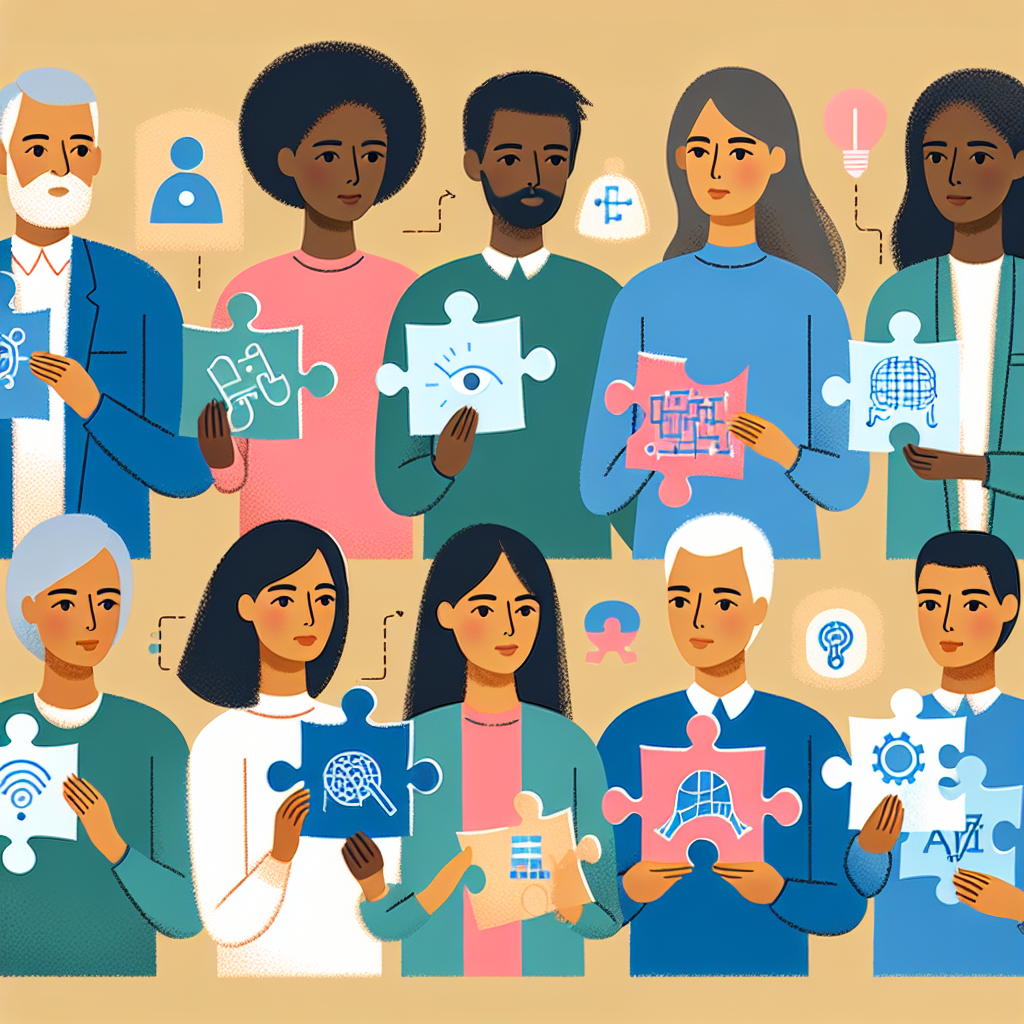The Power of Collaboration in AI Democratization
Artificial Intelligence (AI) has become a transformative technology that is reshaping various industries and aspects of our daily lives. From healthcare to finance to transportation, AI is revolutionizing the way we work, communicate, and interact with the world around us. However, the democratization of AI is still a work in progress, with many barriers and challenges to overcome.
One of the key factors in democratizing AI is collaboration. By working together, researchers, developers, businesses, and policymakers can accelerate the development and deployment of AI technologies, making them more accessible and affordable for everyone. Collaboration in AI democratization can take many forms, from open-source projects to public-private partnerships to international initiatives. In this article, we will explore the power of collaboration in AI democratization and how it can help unlock the full potential of this transformative technology.
The Benefits of Collaboration in AI Democratization
Collaboration in AI democratization offers numerous benefits that can help drive innovation, promote inclusivity, and ensure ethical and responsible AI development. Some of the key benefits of collaboration in AI democratization include:
1. Accelerated Innovation: By working together, researchers and developers can share knowledge, resources, and best practices, leading to faster and more efficient innovation in AI technologies. Collaborative efforts can help avoid duplication of efforts, promote the exchange of ideas, and foster a culture of continuous learning and improvement.
2. Increased Access and Affordability: Collaboration can help reduce the cost of AI development and deployment, making these technologies more accessible and affordable for a wider range of users. By pooling resources and expertise, collaborators can create economies of scale and drive down the costs associated with AI research and implementation.
3. Diverse Perspectives: Collaboration brings together individuals from different backgrounds, disciplines, and cultures, leading to a more diverse and inclusive approach to AI development. By incorporating a variety of perspectives and voices, collaborators can better address the needs and concerns of a diverse range of users and stakeholders.
4. Ethical and Responsible AI: Collaboration can help promote ethical and responsible AI development by fostering transparency, accountability, and fairness in the design and deployment of AI technologies. By working together, collaborators can identify and address potential biases, risks, and ethical dilemmas, ensuring that AI systems are developed and used in a responsible manner.
Examples of Collaboration in AI Democratization
There are many examples of collaboration in AI democratization that are helping to advance the development and deployment of AI technologies around the world. Some of the most notable examples include:
1. Open-Source Projects: Open-source projects such as TensorFlow, PyTorch, and OpenAI have played a key role in democratizing AI by providing free and open access to AI tools, libraries, and frameworks. These projects enable researchers, developers, and enthusiasts to collaborate on AI projects, share code and resources, and contribute to the advancement of AI technologies.
2. Public-Private Partnerships: Public-private partnerships between governments, industry, academia, and non-profit organizations are helping to drive innovation in AI and promote the responsible deployment of AI technologies. These partnerships bring together diverse stakeholders to collaborate on AI research, development, and policy initiatives, leading to more effective and sustainable outcomes.
3. International Initiatives: International initiatives such as the Global Partnership on AI (GPAI) and the AI for Good Global Summit are bringing together countries, organizations, and experts from around the world to collaborate on AI governance, ethics, and policy issues. These initiatives promote global cooperation and coordination in the development and deployment of AI technologies, ensuring that AI benefits all of humanity.
FAQs
Q: What are some of the key challenges to collaboration in AI democratization?
A: Some of the key challenges to collaboration in AI democratization include data privacy and security concerns, intellectual property rights issues, lack of trust and transparency, and cultural and organizational barriers. Overcoming these challenges requires building trust, fostering open communication, and establishing clear guidelines and protocols for collaboration.
Q: How can individuals and organizations get involved in collaborative efforts to democratize AI?
A: Individuals and organizations can get involved in collaborative efforts to democratize AI by participating in open-source projects, joining public-private partnerships, attending conferences and events, and contributing to AI ethics and policy discussions. By actively engaging in collaborative initiatives, stakeholders can help shape the future of AI in a more inclusive, accessible, and responsible manner.
Q: What role do policymakers play in promoting collaboration in AI democratization?
A: Policymakers play a critical role in promoting collaboration in AI democratization by creating a supportive regulatory environment, fostering public-private partnerships, and investing in AI research and development. Policymakers can help facilitate collaboration among stakeholders, address ethical and legal challenges, and ensure that AI technologies are developed and used in a responsible and sustainable manner.
In conclusion, collaboration is essential to democratizing AI and unlocking its full potential for the benefit of society. By working together, researchers, developers, businesses, and policymakers can accelerate innovation, promote inclusivity, and ensure ethical and responsible AI development. Through open communication, shared resources, and diverse perspectives, collaborative efforts can help make AI technologies more accessible, affordable, and beneficial for everyone. By embracing collaboration in AI democratization, we can create a more equitable and sustainable future powered by the transformative capabilities of artificial intelligence.

